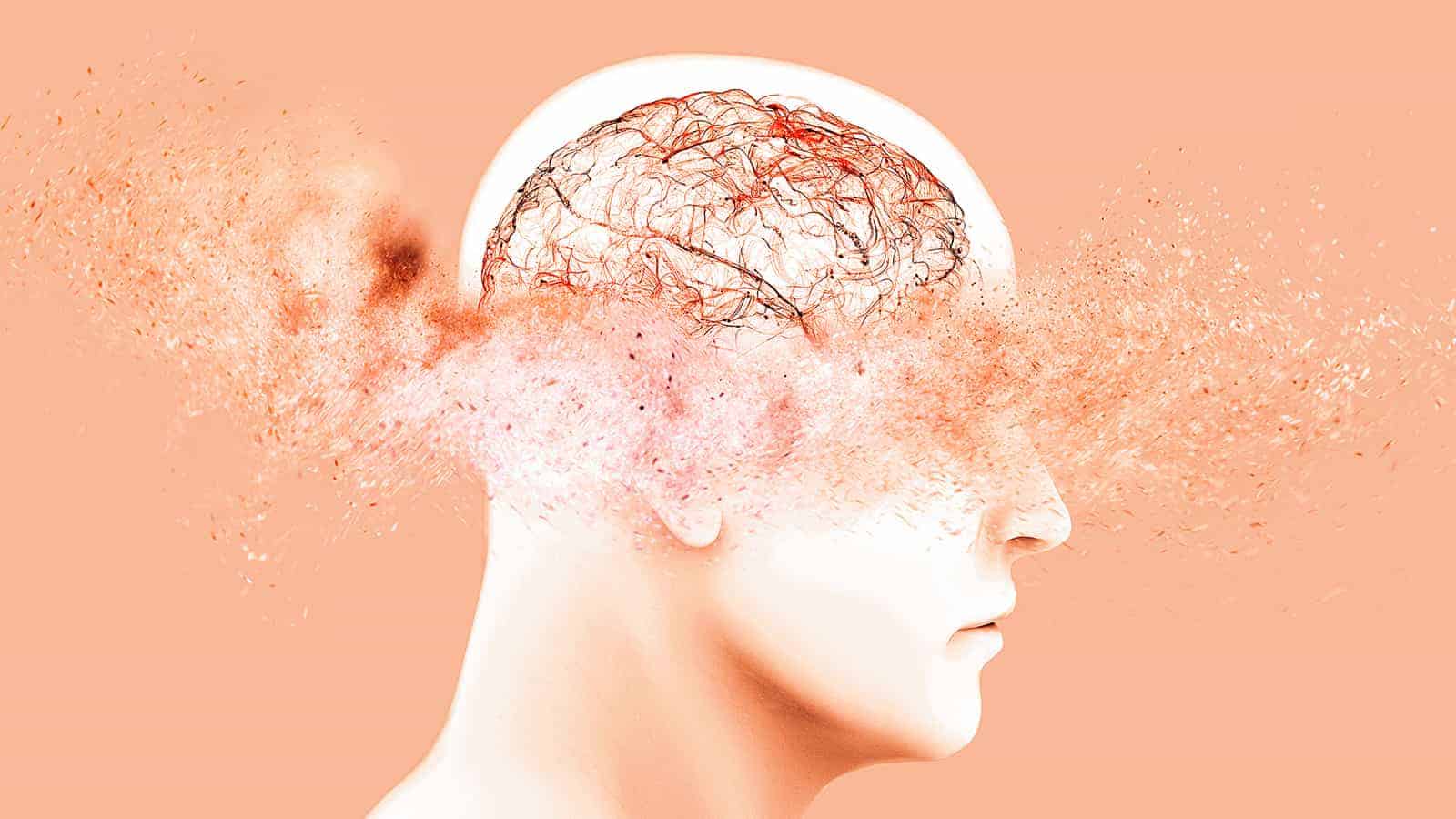How bad is your memory? Do you consider yourself a forgetful person? There may be a surprisingly simple and common cause behind frequent memory lapse!
Many different lifestyle factors and simple everyday events can be the cause of memory lapses. Luckily, these causes aren’t always serious, and they can be managed. Here are five things that cause a memory lapse and how to prevent them.
1. Lack Of Sleep
Your mind needs sufficient energy to maintain a good and healthy level of memory. The National Sleep Foundation states that you need to get seven to nine hours of rest per night if you want optimal brain function! But it’s not as simple as just lying down and getting that technical amount of sleep. The quality of your sleep matters, too.
When you’re sleeping, your brain is doing a lot of healing and restoration work! The National Institute of Neurological Disorders and Stroke says that it works to maintain and build various neural pathways. These pathways allow you to make and keep memories. If you don’t have them well-kept, a memory lapse could occur!
But that pathway-building only happens when you get genuinely good-quality sleep. This means you have to go through every single natural stage of a standard 90-minute sleep cycle. This cycle can get disrupted by different factors. These factors include waking up repeatedly during the night or eating and drinking too late in the day. An uncomfortable sleeping environment can also sabotage your sleep cycle.
To prevent lack of sleep that causes a memory lapse:

· Optimize Your Bedroom Environment
A cozy, suitable bedroom environment is ideal for sleep. Keep light levels low, maintain cool and comfortable temperatures, and charge devices outside of your room. If possible, ensure a calm, quiet atmosphere, too! You should also make sure that your bedding is comfortable and your pillows suit your sleep needs.
· Stop Doing Taxing Things At Night
A lot of the things you do in the latter part of the day keep you up at night! Exercising can send a lot of adrenaline pumping through you and makes you feel invigorated, which is terrible for sleep. Eating a big meal or drinking alcohol or caffeine too close to bedtime will worsen sleep quality. Showering too late will wake you up (a warm bath is a better option).
· Maintain A Regular Sleep Schedule
We get it – it’s tempting to sleep in when you don’t have work! And the “next episode” button of your favorite streaming service beckons on free nights. But don’t fall for it! A regular sleep schedule keeps your circadian rhythm even and allows you to fall asleep at a designated time naturally. You’ll also feel fresher when you wake up.
· Put Devices Away
The blue light – and any light in general – from your electronic devices is keeping you awake. This light tells your brain that it’s still daytime, which stunts the production of the sleep hormone melatonin.
2. Depression
Few people realize that a memory lapse can be caused by depression! Compared to various other possible factors for memory impairment, studies have found that depression is the most strongly associated culprit.
Why does this happen? The truth is that research is still ongoing into this subject. Some research suggests that this is because of a neurotransmitter called glutamate. Glutamate is the most abundant of the nervous system’s neurotransmitters, and it can reduce in quantity due to depression. There is other research that implies depression can alter the structure of your brain, decreasing hippocampal volume, which may cause a memory lapse.
Of course, there’s also the simple fact that common symptoms of depression often contribute to poor brain health. You have trouble concentrating. Sleep is either too scarce or too constant. You’re down and dissociated all the time. It makes sense that you’d feel like you can’t remember anything in that situation!
To prevent a memory lapse caused by depression:
· Seek Professional Help
There’s a lot of negative stigma against seeking mental health aid, but it’s often necessary. Mental disorders are just like physical ones in that they require professional treatment for proper care, management, and recovery. Getting help from a psychologist, therapist, counselor, or psychiatrist for depression tackles the root of memory loss instead of treating the isolated symptom. This is the ideal way to go!
· Take Care Of Yourself
It’s hard to take care of yourself when you’re depressed. Ironically, the less you care for yourself, the more depressed you end up feeling! You don’t need to do absolutely everything for maximum self-care. Just taking the time to keep up your hygiene, eat relatively well, or follow the advice mentioned above for better sleep can work wonders. The slight positive hormone boosts you get from exercise can be beneficial, too!
· Learn Stress Management
When coupled with depression, stress is a surefire way to end up burned out, overwhelmed, and exhausted. Learning a few stress management techniques is an ideal way to handle this. Cutting down on your commitments or spending some daily time meditating can already be quite helpful!
3. Medications
Various medications can make you forgetful, and lots of them are pretty common! According to a Harvard Medical School Special Health Report, some of these medications are:
- Alprazolam (Xanax)
- Amitriptyline (Elavil)
- Brompheniramine (common in cold or allergy medicine)
- Chlorpheniramine (common in cold or allergy medication)
- Cimetidine (Tagamet)
- Desipramine (Norpramin)
- Diphenhydramine (common in cold or allergy medication)
- Nortriptyline (Aventyl or Pamelor)
- Oxybutynin (Ditropan)
- Paroxetine (Paxil)
- Tolterodine (Detrol or Detrusitol)
If you are taking any of these medications, they may be the reason for your occasional memory lapse problems. Talk to your doctor about finding a replacement for them that will offer you the benefits you need without jeopardizing memory.
As a rule, it is always a good idea to thoroughly research and understand the side effects of the medication you are taking. You can prevent further memory lapse problems from medication by committing to this type of research in the future!

4. Working Memory Overload
A memory lapse typically involves short-term memory or working memory. This isn’t an infinite resource; think of it like the RAM on your computer. Your working memory can only keep a certain amount of information available before it has to let some of it go. Research shows that most healthy young individuals can only maintain three or four simple items in their working memory!
This means that your memory lapse may be the cause of overcrowding in a healthy brain. You need to remember your new colleague’s name, buy tickets for that movie, and get eggs on your way home. That’s it – your working memory is now maxed out! This leaves you feeling like you forget something as you add more items into it anyway. You risk forgetting the newer information entirely or removing the older data to make room for the new.
To prevent a memory lapse caused by working memory overload:
· Be More Mindful
To move from working memory to more long-term memory, you need to pay sufficient attention to them. The entire process of proper memory encoding for good memory retrieval is quite complex, say studies. Your cerebral cortex must collect information and then move it to your hippocampus, which then translates them into long-term data. If you’re distracted when receiving information, this won’t work! So try to pay close attention when information is being given to you.
· Write It Down
Scribbling down a list of things you need to remember is incredibly beneficial in maintaining memory. Even the act of writing things down can make your brain encode this information, says research. And if you do forget, you’ll have written it down, so you have it somewhere, even if it’s not in your brain.
· Know Your Limits
Pushing yourself too hard is sure to fatigue you and damage your brain health. If you want to avoid being forgetful, ensure you’re getting enough rest to allow for a sharp and healthy brain. Know your limits and learn to say “no” when you already have too much on your plate. Prioritizing what you need to do will ensure that you don’t forget crucial things!
5. Nutritional Deficiency
Your brain requires nutrients to function adequately. If it lacks any of the nutritional components that it needs, you could suffer from it. Common nutritional deficiencies include:
· Omega-3 Fatty Acids
Those who consume sufficient omega-3 fatty acids tend to have a higher brain composition of gray matter, says research. Gray matter plays a significant role in emotional regulation, decision-making, and, of course, memory! You can get some from fatty fish, avocados, flax and chia seeds, soybean, and walnuts.
· Vitamin B12
Cobalamin, or vitamin B12, is a crucial water-soluble nutrient that plays a significant role in nervous system function, say studies. The older you get, the less likely you are to be consuming sufficient vitamin B12, which can contribute to the risk of profound memory loss. You can get this nutrient from animal kidneys or liver, fortified cereal, nutritional yeast, certain types of fish, and dairy products.
· Vitamin E
Studies have shown that vitamin E is capable of improving mental performance significantly. It also protects the brain against free radicals, which may contribute to cognitive decline later on. You can get vitamin E from leafy vegetables, vegetable oil, nuts, fortified foods, and seeds.
To prevent a memory lapse caused by nutritional deficiency:
· Eat The Aforementioned Nutrients
Make sure you’re getting vitamin B12, vitamin E, omega-3 fatty acids, and more. This should go without saying! Look up the recommended daily intake for your age group and follow that as closely as possible.
· Talk To An Expert
Speak to your doctor or a dietician about foods that you can eat related to memory and brain health. Be sure to consume all the recommended nutrients for a healthy life.
· Take Supplements
If you can’t get your nutrients from food sufficiently, try a supplement for them. Just remember to speak to a doctor before beginning any supplement regimen.

Final Thoughts On Some Things That Cause Memory Lapse And How To Prevent Them
A memory lapse is often a sign of an aspect of poor lifestyle. You may not be getting enough sleep eating enough nutrients. You may be overloading your memory. Or your medications or a mood disorder could be to blame!
Whatever the case, if you feel that your memory lapses are becoming overwhelming, you should seek medical aid. It could be the sign of something more serious. And even if it isn’t, a doctor’s advice is always helpful!


















